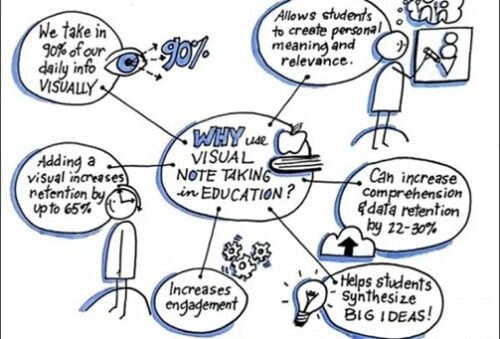- With so much information at our fingertips through a Google search, note-taking may seem like an unnecessary and tedious task.
- Students, educators, researchers, and professionals in any field benefit greatly from systematically taking notes that they can easily store, retrieve, and share.
- From enhancing memory retention and comprehension to promoting active listening and boosting creativity, note-taking transforms the way we absorb, process, and apply knowledge.
With easy access to digital devices and constant internet connectivity, some may think that the practice of note-taking is no longer useful. People are fixated on speed and convenience, and the act of getting a paper and pen or even opening the note application on a mobile phone may seem like a tedious task. Why jot down notes if you can quickly do a Google search when you need the information?
If you are a student, an educator, a researcher, or a professional in any field, there are important pieces of information that you would need to remember without the help of Google. And because the human brain can only save a piece of information in memory for a few days, having notes that you took and that you can store, retrieve, and share will be very helpful.
Note-taking seems simple, but doing it systematically and methodically is essential for academic work, personal growth, professional development, and lifelong learning.
In this article, we’ll delve into the top 15 reasons why note-taking continues to be of paramount importance in today’s fast-paced world.
Table of Contents
1. It enhances memory retention.
One of the most fundamental benefits of note-taking is its impact on memory. The act of summarizing and organizing information while writing or encoding notes helps cement concepts in your mind. A study that compared recall of information between longhand note-takers and students who photograph lecture slides revealed that the note-takers outperformed the photo-takers, even with an equal opportunity to review their learning materials before the test. Though the photograph of the lecture has the complete information, the multiple tasks of listening, summarizing, and writing are more effective in remembering the information.
2. It promotes active listening.

3. It improves comprehension.
The process of translating spoken or written words into your own notes requires understanding the material at a deeper level. According to a study from The American Journal of Psychology, note-taking facilitates deeper comprehension and critical thinking skills because people who take notes are more likely to elaborate on the material by processing and interpreting information.
4. It organizes thoughts.
5. It facilitates effective review.
6. It boosts creativity.

7. It supports goal tracking.

8. It enhances learning efficiency.
For students and lifelong learners alike, note-taking accelerates the learning process and leads to better performance. It condenses extensive information into manageable, digestible chunks, aiding in better understanding and retention of complex subjects.
9. It minimizes distractions.
10. It captures nuances.
Not everything can be encapsulated in a slide or textbook. Note-taking allows you to capture the nuances, examples, and real-life context that provide a deeper understanding of a subject matter. For example, using the REAP note-taking method, you can engage with the text meaningfully by actively understanding the text and adding insights, comments, or questions based on your own reflection.
11. It allows you to personalize the study material.
Everyone’s learning style is unique. By creating your own notes, you’re tailoring the material to your preferred way of understanding. For example, if you are a visual learner, then you might want to draw your notes using visual note-taking strategies. If structuring information helps you, consider using the charting method. This customization makes the learning experience more effective and enjoyable.




